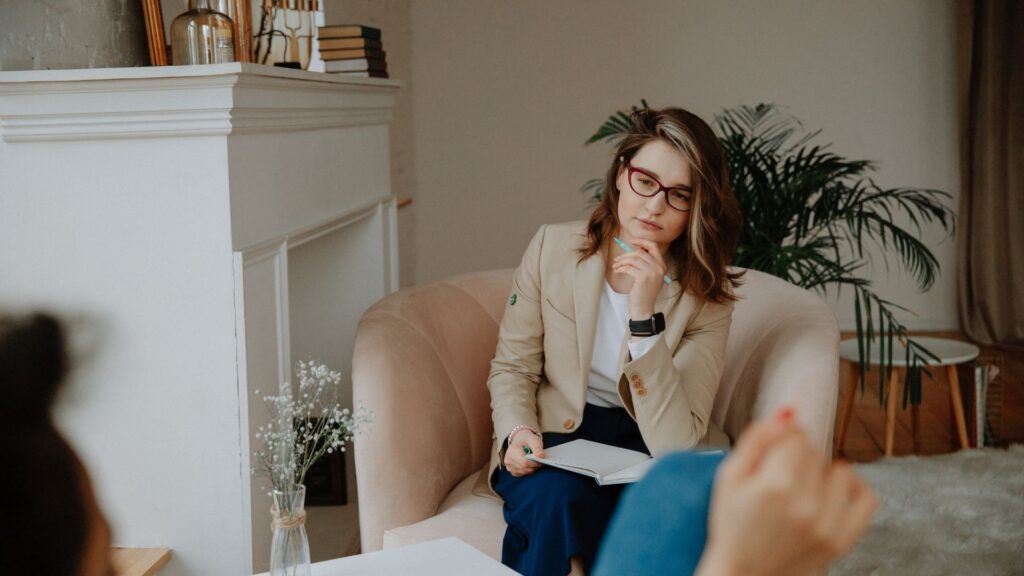When you think of the word “therapist” what are the first thoughts or images that come to mind? Calm, gentle, warm and understanding. These are definitely positive qualities that a good therapist should have, but there are many more…and a hypnotherapist?
A hypnotherapist should have much of the same qualities as a therapist as ultimately, the goal is the same; to achieve a positive outcome for the mental health of the person you are seeing.
Let’s take a step back to understand what hypnotherapy is.
According to the British Society of Clinical Hypnosis (BSCH), “Hypnotherapy is using the state of hypnosis to treat a variety of medical and psychological problems. It is estimated that 85% of people will respond at some level to clinical hypnotherapy. It may even succeed where other more conventional methods of treatment have not produced the desired result. When carried out by a trained and qualified hypnotherapist the benefits can be long lasting and often permanent. It is natural and safe, with no harmful side effects.”
Through the use of hypnosis and accessing the unconscious mind directly, hypnotherapists are able to get to some of the root causes of people’s problems. Hypnotherapy effectively bypasses the conscious state, which often blocks and hides events, experiences, feelings and thoughts that could be the cause of the client’s negative state.
This direct access to the unconscious allows hypnotherapy to work faster than other forms of therapy such as psychotherapy and counselling, psychoanalysis or psychiatry.
Now that we’ve established what hypnotherapy is, let’s delve deeper into what qualities should be present in anyone who is in a role that is considered to be ‘helping,’ like hypnotherapy is. We thought we’d choose our top 5 qualities.
For us, at the LCCH I, the single most important quality is empathy.
Empathy is the ability to put yourself in your client’s shoes; see the world from their perspective. It is different from sympathy, which is the ability to feel for another person, not feel of the other person… As a hypnotherapist the ability to empathise with your client is vital in order to understand what they are going through and plan a path in which you can help. It is almost impossible to help someone if you are unable to empathise with them.
The next vital quality is authenticity. Authenticity is, simply put, genuineness. In the role of a hypnotherapist or therapist, being genuine with your client is a key ingredient to building trust. Your client must view you as a person who they feel is being ‘real’ with them; who is genuinely interested in what they have to say and genuinely interested in helping them with their problem.
Another vital quality is the ability to listen actively. The only way a hypnotherapist or a therapist can help a client is to listen to what they are saying. Active listening involves taking the time to not just listen but to clarify and understand what the client is saying and what the client wants to achieve by coming to you. Giving your client the time to speak; demonstrating that you are listening through both verbal and non-verbal cues and taking the time to sometimes read between the lines will allow you, as a hypnotherapist, to empathise and find the best way forward for them.
The ability to communicate is both a skill and a quality necessary to be a good hypnotherapist. A hypnotherapist must have to ability to communicate with the client what they will be doing during the session; what they expect from the client; how the entire process will work and what they hope to achieve. Unlike traditional therapy, where the client is in a conscious state, hypnotherapy taps into the unconscious mind through informed mutual collaboration. To ensure a positive and productive session, the hypnotherapist explores the most appropriate approach to take with their client.
Last but not least, the hypnotherapist must demonstrate confidence. Confidence in your ability and confidence in the process of hypnotherapy. This is important as for a hypnotherapy session to be successful, your client must be able to trust you. If YOU lack confidence in what you are doing, the chances of a client feeling comfortable to let go and put their trust in you is likely to be slim… if that.
These are our top five qualities for a hypnotherapist. Of course, there are several more. The truth is that we all have these qualities in us. Many of us just don’t know we have them. Can YOU be a hypnotherapist? Of course, you can. You just need to tap into your inner self to discover these and other relevant qualities within you.
If you are thinking about a career in hypnotherapy, sign up for our taster session. It’s an excellent introduction to ‘all things hypnotherapy,’ including life as a hypnotherapist. For more information or for any questions you may have, please visit our contact page and get in touch. We’d love to hear from you.

